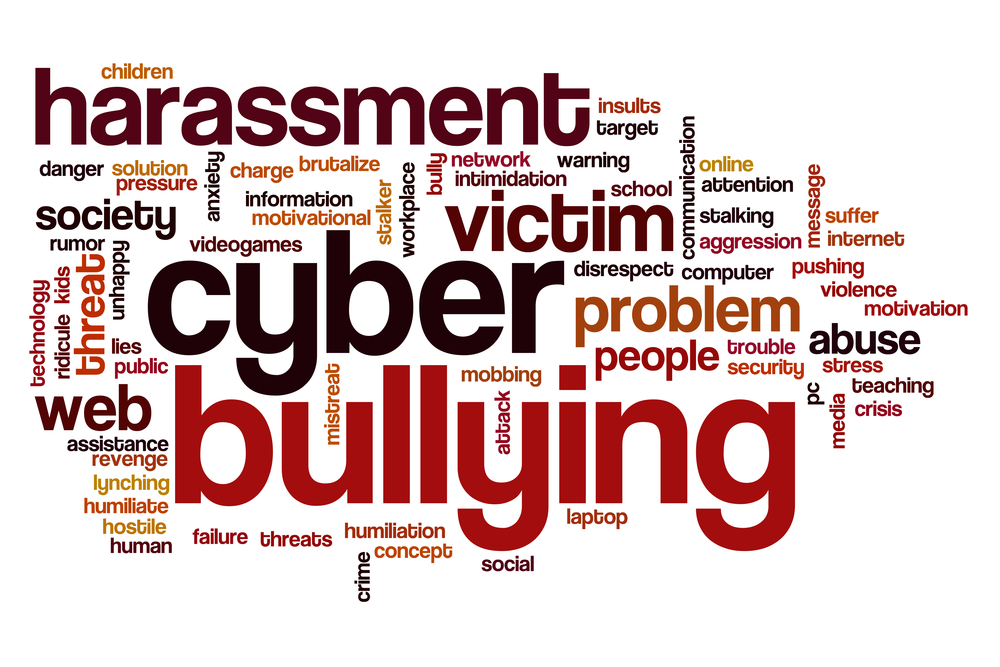Cyberbullying or cruelty on the network: what to do and how to tackle?
Cyberbullying is a problem that has arisen with the advent of the Internet in most families. And if at the beginning children used the World Wide Web for games and socializing, then over time they became aware of their inaccessibility and impunity. Kids can call a classmate on the street with insulting words. But they can get a call back. Or getting caught by parents. But who will keep track of the thousands of messages in the network? Unfortunately, cyberbullying is a real problem of modern society. And many of the children may be at risk of pressure, humiliation and even virtual inducement to suicide. Therefore, parents' attention to this issue should be close and constant.

What is cyberbullying?
Cyberbullying means actions aimed at inflicting psychological harm implemented through the Internet. Typically, these actions are performed by children and adolescents in relation to their peers. Also cyberbullying can be named online bullying, which can lead to irreparable consequences.
US researchers identify eight types cyberbullying which occur in the virtual dialogue between young people all around the world.
- Flaming- exchange of short messages on the public or on the open pages. Can spill over into a prolonged conflict with the transition to the individual.
- Harassment - repeated offensive messages directed at the victim. These can be e-mail, messages in private chat, SMS, calls, and targeted messages to general chat from a larger number of participants.
- Denigration - the spread of offensive and false information, including text, edited photos, video, etc.
- Creating fake web pages with the name of the pursued (impersonation) or stealing passwords of existing accounts. This approach is used to create provocative messages and emails.
- The dissemination of confidential information (outing & trickery) - obtaining personal information and publishing it on the Internet.
- Ignore. The purposeful ignorance and exclusion from the group interaction. It leads to a decrease in self-esteem and emotional destruction.
- Сyberstalking - hidden persecution to attack and harm.
- Happy Slapping - any kind of violence, filmed on video, which was later posted on the Internet.
How to protect children from cyberbullying?
Protecting children from cyberbullying - is everyday work of parents. After all, only you can see the smallest changes in mood. One of the main signs that your child is exposed to cyberbulling, are the following:
- The child is constantly depressed;
- He seems frightened;
- He removed their pages in social networks, trying not to check e-mail;
- In comments on his page can be seen negative comments in his address;
- The child is nervous when he had to receive calls or SMS.
If you notice a change in the behavior of your child, try to find out if he is exposed to Internet abuse. We recommend you to install KidLogger parental control app on your child phone and computer. It will help you to find out what your children do being online, with who communicate, from who receive calls and SMS, which web-page visit, etc.
Our service cannot replace parental upbringing, but it will help you to avoid cyberbulling against your children. And they will always be under your parental control.
Tutaj znajdziesz samouczki, artykuły i ogłoszenia dotyczące KidLogger SAS: jakie nowe funkcje wdrożyliśmy, jak zainstalować KidLoggera oraz jak skonfigurować monitorowanie użytkowników na różnych platformach, takich jak Windows, Mac, Android.
Z chęcią wysłuchamy wszelkich sugestii dotyczących ulepszania KidLoggera.
„Nigdy nie zostawiaj dzieci i pracowników bez nadzoru.”
Archive
Najnowsze wiadomości
- 10 lut
- 22 sty
- 08 sty
- 30 gru
- 10 gru
- 22 lis
- 17 lis
- 21 paź
- 17 paź
- 11 paź